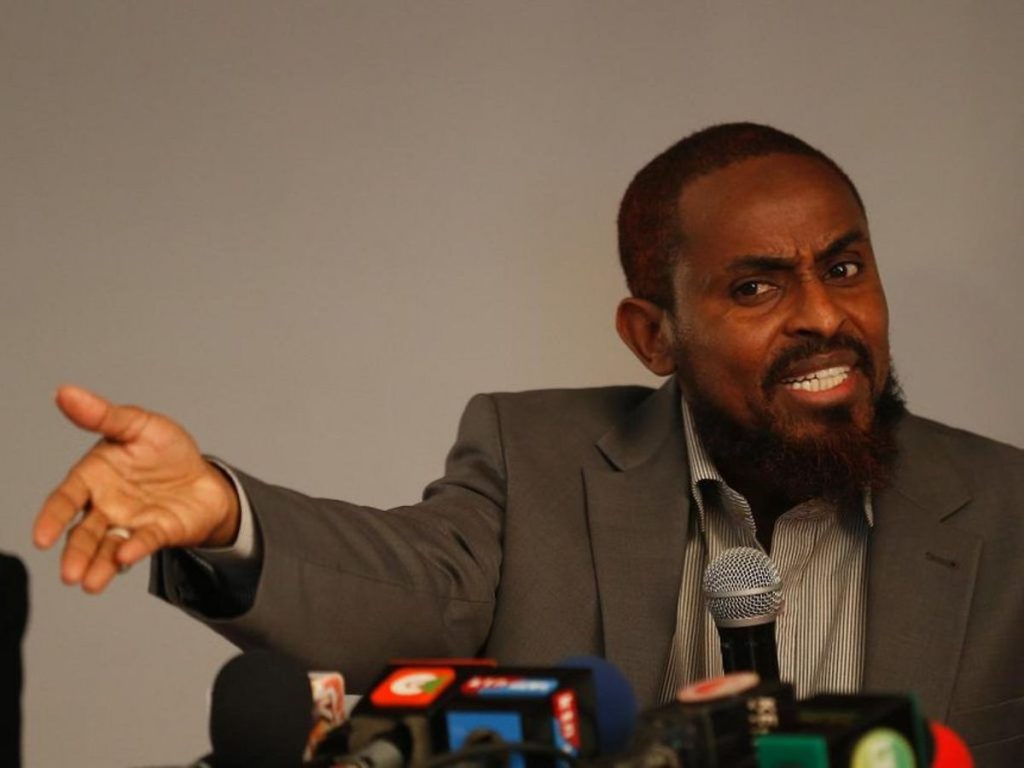Mohamed Abduba Dida, once a household name in Kenya’s political arena, now finds himself in a vastly different position—behind bars in the United States.
Known for his surprising bids for the presidency in 2013 and 2017, Dida is currently serving a prison sentence at the Big Muddy River Correctional Center in Illinois.
This sharp contrast from his previous ambitions has left many stunned, wondering how a man who once sought to lead Kenya ended up in such dire circumstances.
His charges
Dida’s downfall in the U.S. began with a series of legal entanglements in McLean County, Illinois.
He was charged with two serious offenses: stalking and transmitting threats, which earned him a two-year prison term, and aggravated stalking combined with violating a restraining order, for which he received a more severe five-year sentence.
These combined sentences mean Dida will not see freedom until at least April 2025, with his full release expected by April 2029.
Legal proceedings
The specifics of Dida’s crimes have raised eyebrows, especially given his former public image in Kenya.
The charges, which involved actions that posed a clear threat to an unidentified individual, starkly contrast with the persona he cultivated as a politician.
Whether Dida had moved to the U.S. permanently or was simply visiting when the incidents occurred remains unclear, but his arrest and subsequent conviction have certainly made headlines, not just because of who he is, but because of the severity of the accusations.
Even while incarcerated, Dida has not shied away from the legal system. He has filed a civil rights lawsuit against the Big Muddy Correctional Center, claiming that his rights as a Muslim are being violated.
In his lawsuit, Dida alleges that prison officials, including Warden Kimberly Hvarre and Chaplain Jeffrey Fernberg, have obstructed his ability to practice his religion. His complaints include the prison’s failure to provide adequate facilities for daily prayers, insufficient space for worship, and inadequate support during Ramadan.
The lawsuit, which is being heard by the United States District Court for the Southern District of Illinois, could result in significant changes to how religious practices are accommodated in the prison system if Dida’s claims are upheld.
The court’s decision will hinge on whether Dida’s religious rights were unlawfully restricted, a ruling that could have broader implications for inmates of all faiths in the U.S.
Dida’s political journey
As a former teacher of English Literature and Religion, Dida brought a unique perspective to the presidential races in 2013 and 2017.
His campaigns, which focused heavily on education reform and moral integrity, captured the attention of many Kenyans, even if they did not translate into electoral success. In the 2013 election, Dida secured 52,848 votes, representing 0.43% of the total, and in 2017, he garnered 38,004 votes, or 0.25% of the total.
Though his political career may not have reached the heights he once aspired to, Dida became a well-known figure in Kenyan politics, advocating for the marginalized and calling for a more just society.
***
His current situation in the U.S. stands in stark contrast to the principles he championed, leaving many to reflect on the unpredictable twists of fate that can alter the course of a life.


